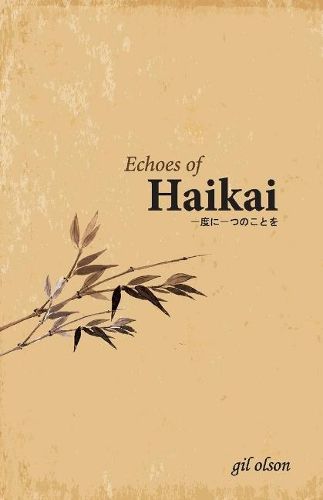Readings Newsletter
Become a Readings Member to make your shopping experience even easier.
Sign in or sign up for free!
You’re not far away from qualifying for FREE standard shipping within Australia
You’ve qualified for FREE standard shipping within Australia
The cart is loading…






Echoes of Haikai comprises 75 original westernized Japanese poems whose spirit remains faithful to (e.g., echo) the traditional Japanese poetry intents and origins.Haikai has been defined broadly as any of the forms of Japanese literature (haiku, renku, senryu, haibun, diaries and travel writings, zuihitsu, and tanka or waka). While there may be guidelines and norms, surprisingly there are no rigid forms for haikai. Western haikai writers have been allowed even more freedom by definition, or by some poets’ own redefined craft, regarding line length, syllables, use of seasonal words and nature references, use of metaphors and similes, grammatical breaks, and poem introductions - as long as the spirit of the words remain faithful to (e.g., echo) the traditional Japanese intent and origins. The writer may intend one thing in a haikai, or may intend an ambiguity - the reader may see something different. The ear hears the sounds that it hears. The eye sees the visions it sees.
$9.00 standard shipping within Australia
FREE standard shipping within Australia for orders over $100.00
Express & International shipping calculated at checkout
Echoes of Haikai comprises 75 original westernized Japanese poems whose spirit remains faithful to (e.g., echo) the traditional Japanese poetry intents and origins.Haikai has been defined broadly as any of the forms of Japanese literature (haiku, renku, senryu, haibun, diaries and travel writings, zuihitsu, and tanka or waka). While there may be guidelines and norms, surprisingly there are no rigid forms for haikai. Western haikai writers have been allowed even more freedom by definition, or by some poets’ own redefined craft, regarding line length, syllables, use of seasonal words and nature references, use of metaphors and similes, grammatical breaks, and poem introductions - as long as the spirit of the words remain faithful to (e.g., echo) the traditional Japanese intent and origins. The writer may intend one thing in a haikai, or may intend an ambiguity - the reader may see something different. The ear hears the sounds that it hears. The eye sees the visions it sees.